Month: December 2021
Well-Being Refresh
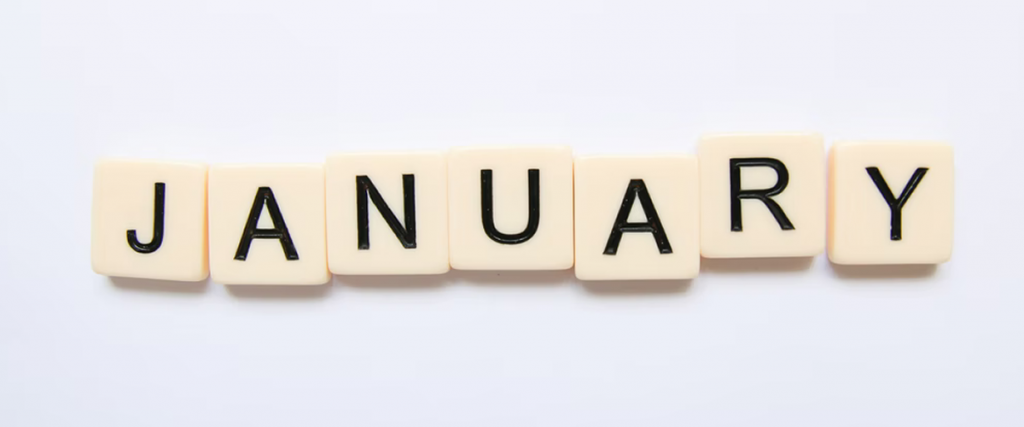
Refresh in January
A new year can bring new energy to refresh your well-being! The truth is we don’t need a new year to make positive changes, but sometimes the fresh start can be what it takes to get us started. If you’re thinking about making some changes this year, be sure to think small. It is common to get carried away with a grand new year’s resolution, but habit-building science confirms that small, consistent changes lead to better outcomes.
Here are six small and simple ways you can refresh your well-being in the new year!

Reflect: Take some time to look back on the past year. What went well? What was challenging? What kinds of things do you want to do again? What types of things do you want to avoid, if possible? Looking back on where you’ve been can help you determine where you want to go. Use your reflection of 2021 to help you establish and define your intention for 2022.
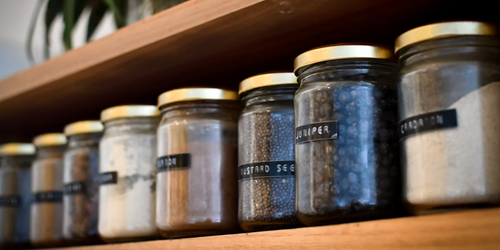
Clean Your Physical Environment: Start the new year with a clean and organized space, whether that’s at work, at home, or both! Think about your goals and intentions for the upcoming year and determine which areas could use a little tidying. Maybe you want to clean out your kitchen pantry or purge your clothes closet, or finally tackle that old filing cabinet. You don’t have to do it all at once, but start somewhere and do one space at a time…even if that means you won’t be done until next January.

Clean Your Digital Environment: Don’t let technological noise take up precious space in your brain and life. Use the new year as an opportunity to unfollow and unsubscribe from digital content that is no longer serving you. If you’re feeling bold, you may delete some apps altogether!
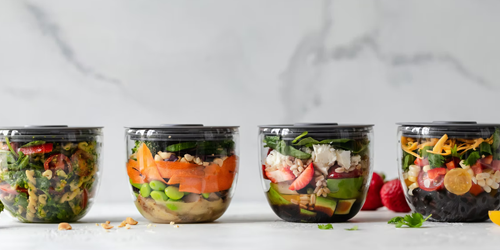
Update Your Routine: Routines can help you manage change, stick with healthier habits, and reduce overall stress. If you’ve noticed yourself out of your regular morning or evening routine (or you’ve never had a routine), now is the time to get on track. Think of a few things that make you feel your best, and try incorporating them into a simple routine. Perhaps that means getting up 20 minutes early to read or journal before the rest of your family wakes. Or maybe you’ll start putting on your walking shoes as soon as you get home so you can take the dog for an evening walk. It could even be setting aside time on Sunday afternoons to grocery shop and meal prep for the week ahead. Keep track of how many days or weeks in a row you can maintain your routine to add extra motivation.
Goal Setting
Resolutions are easy to make but hard to follow through with. This is because most resolutions (I want to get healthy. I want to lose weight. I want to be more organized. I want to save more money.) are too vague and do not incorporate concrete actions. On the other hand, effectively developed goals are specific, finite, and help you stay focused on your desired outcome.
- You can set a goal for almost anything! Whether you are training for a race, trying to eat more vegetables, or saving for a big purchase, making your goals SMART sets you up for success!
- Be purposeful in your goal setting. Choose a small number of objectives that are the most important to you. A goal should include a metric that lets you know you have accomplished it.
- It is easier to stick to a new behavior with a supportive network. Accountability can be motivating and is critical for success. Tell friends, family, and co-workers about your goals and ask them for support.
Radon: Fact or Fiction?

Did you know radon is present in many Idaho homes? The Idaho Environmental Health Program within the Division of Public Health manages the Idaho Radon Program. Below is information to separate radon facts from fiction and help keep your family healthy.
FACT: All homes should be tested for radon.
Radon is a naturally-occurring radioactive gas that you cannot see, smell, or taste. It enters homes through gaps or cracks in the foundation. All homes, including new builds, existing homes, and those with and without basements, can have high levels of radon gas. With more people working from home due to the COVID-19 pandemic, the risk of radon exposure may be increased as more time is spent within the home.
Testing is easy and is the only way to know if you are being exposed to radon in your home. The Environmental Protection Agency (EPA) recommends testing your home every two years or after any remodeling.
You can order a FREE short-term test kit from www.radonidaho.org or call the Idaho Careline at 2-1-1 or 1-800-247-2435.
FICTION: Radon is not an issue where I live.
Two out of every five homes tested in Idaho have higher than the recommended levels for radon. In fact, high radon levels have been found in every county in the state. To learn more about radon test results and recommended actions, visit www.radonidaho.org. You can also view Idaho radon test results by zip code on an interactive map and order a FREE short-term test kit.
FICTION: Radon is not harmful to my health.
Long-term exposure to radon gas is known to cause lung cancer and is the leading cause of lung cancer in non-smokers. To learn more about the health effects of radon, visit the Environmental Protection Agency’s (EPA) Health Risk of Radon website at epa.gov/radon/health-risk-radon.
FACT: Winter is the best time to test a home for radon.
Radon levels can change by season and with the weather. The highest levels of radon are found during the winter months when homes get less fresh air. To learn more about radon testing and how to respond to a radon problem, visit www.radonidaho.org.
FACT: A radon problem can be solved!
Radon mitigation systems can effectively reduce the levels of radon in a home. The Idaho Radon Program recommends hiring a nationally-certified radon professional to fix your home. To locate a radon professional, visit www.radonidaho.org.
The Idaho Radon Program is offering a free two-hour interactive radon workshop that will explain what radon is, how it enters your home, and what you can do to help prevent excessive exposure and reduce your risk of lung cancer. To register, please visit www.radonidaho.org.
- January 18, 2022 at 1pm-3pm MT Virtual Online
- January 20, 2022 at 9am-11am MT City of Hailey, Council Chambers (*in-person masks required)
- January 25, 2022 at 9am-11am MT Virtual Online
- February 3, 2022 at 9am-11am MT Idaho Falls Building Department (*in-person masks required)
- February 17, 2022 at 1pm-3pm MT Virtual Online
If you have questions or need more information, contact the Idaho Radon Program at 1-800-445-8647 or radon@dhw.idaho.gov.
Help is Close When You Need It
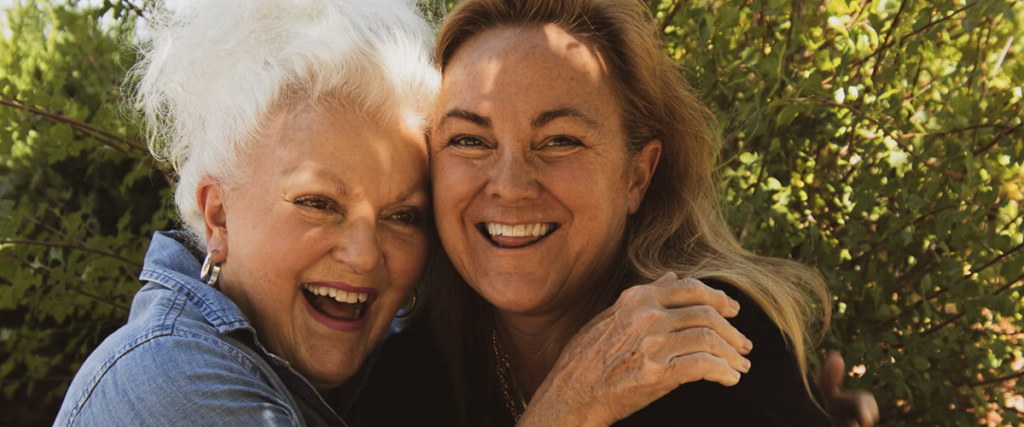
Caring for someone with Alzheimer’s and other dementias can be a rewarding experience, it can also be demanding and challenging. Caregivers for people with Alzheimer’s and other dementias are two and half times more likely than caregivers with other conditions to need help with emotional or mental challenges and nearly four time as likely to assist with behavioral issues (Alz Association, 2018).
About one in three Alzheimer’s caregivers report their health has gotten worse due to care responsibilities, compared with one out of five caregivers or older adults (National Alliance for Caregiving, 2017).
Luckily help is available within the local area where the caregiver or the person with Dementia are living.
Caregivers usually do not know what they are seeking when calling an agency, so The Idaho Commission on Aging in partnership with six Area Agencies on Aging staff can aid caregivers to explore a spectrum of issues so the caregiving family can make informed decisions in their situation. There are 6 AAAs located throughout the state and each are experts on resources available in their communities.
Area Agencies on Aging (AAAs) are trusted sources of information and assistance, where older adults can turn to find specialized information, supports and service options in their area. AAAs also play a crucial information and referral role, connecting families with local providers who can help them create a caregiving plan, address specific challenges, or identify support services.
In addition to Information and Assistance, each local AAA also offers support groups, Powerful Tools for Caregiver workshops, and respite.
The Commission on Aging’s website has free education and training resources found on the Idaho Commission for Aging’s website. Further, the Idaho Chapter of Alzheimer’s offers “Know the 10 Signs” and “Understanding Alzheimer’s and Dementia” and many other webinars. Look out the January schedule of educational webinars here.
References:
Alzheimer’s Association. (2018) Alzheimer’s disease facts and figures. Alzheimer’s Dementia 2018;14(3). Available at alz.org
National Alliance for Caregiving in Partnership with Alzheimer’s Association. Dementia caregiving in the U.S Bethesda, MD: National Alliance for Caregiving: 2017.
The 12 Ways to Wellness
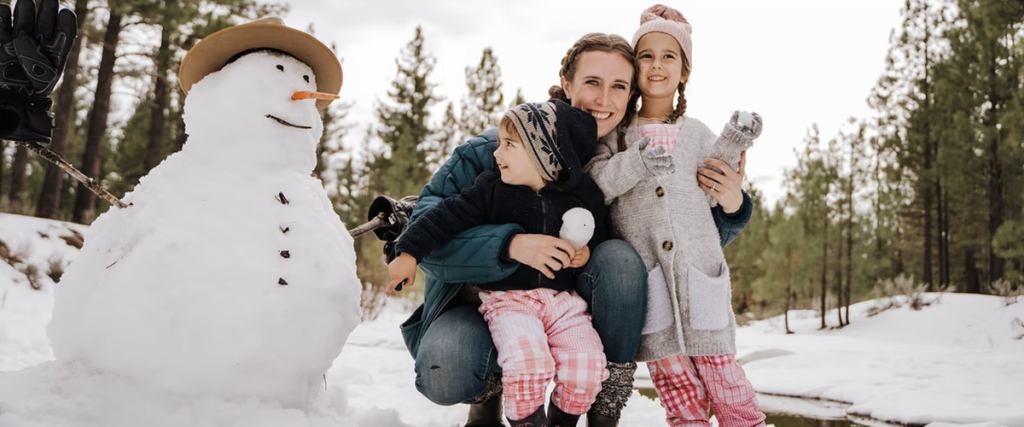
The 12 Ways to Wellness
Sung to the tune of The 12 Days of Christmas
The first way to wellness said Health Matters to me,
Wash hands to be safe and healthy!
The second way to wellness said Health Matters to me,
Manage your stress, and wash hands to be safe and healthy!
The third way to wellness said Health Matters to me,
Drink water, manage your stress, and wash hands to be safe and healthy!
The fourth way to wellness said Health Matters to me,
Move your body daily, drink water, manage your stress, and wash hands to be safe and healthy!
The fifth way to wellness said Health Matters to me,
Prioritize your sleeeeeeeeeep, move your body daily, drink water, manage your stress, and wash hands to be safe and healthy!
The sixth way to wellness said Health Matters to me,
Eat fruits and veggies, prioritize your sleeeeeeeeeep, move your body daily, drink water, manage your stress, and wash hands to be safe and healthy!
The seventh way to wellness said Health Matters to me,
Understand your value, eat fruits and veggies, prioritize your sleeeeeeeeeep, move your body daily, drink water, manage your stress, and wash hands to be safe and healthy!
The eighth way to wellness said Health Matters to me,
Make time for self-care, understand your value, eat fruits and veggies, prioritize your sleeeeeeeeeep, move your body daily, drink water, manage your stress, and wash hands to be safe and healthy!
The ninth way to wellness said Health Matters to me,
Get vaccinated, make time for self-care, understand your value, eat fruits and veggies, prioritize your sleeeeeeeeeep, move your body daily, drink water, manage your stress, and wash hands to be safe and healthy!
The tenth way to wellness said Health Matters to me,
Plan a vacation, get vaccinated, make time for self-care, understand your value, eat fruits and veggies, prioritize your sleeeeeeeeeep, move your body daily, drink water, manage your stress, and wash hands to be safe and healthy!
The eleventh way to wellness said Health Matters to me,
Use good ergonomics, plan a vacation, get vaccinated, make time for self-care, understand your value, eat fruits and veggies, prioritize your sleeeeeeeeeep, move your body daily, drink water, manage your stress, and wash hands to be safe and healthy!
The twelfth way to wellness said Health Matters to me,
Build a social network, use good ergonomics, plan a vacation, get vaccinated, make time for self-care, understand your value, eat fruits and veggies, prioritize your sleeeeeeeeeep, move your body daily, drink water, manage your stress, and wash hands to be safe and healthy!
 Official Government Website
Official Government Website